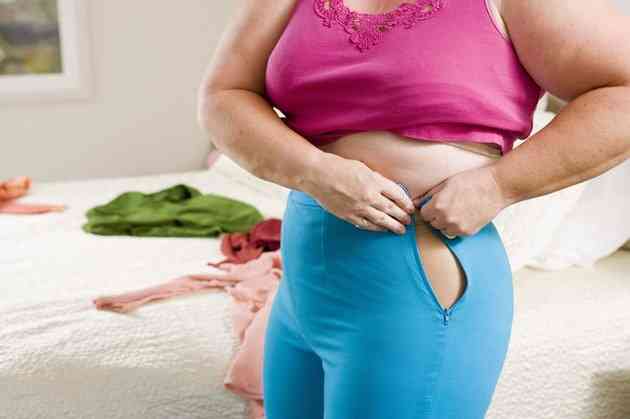Can You Lose Weight With Cold Showers?

While it's nice to think that you can burn away excess fat by showering, it's not the best way to shed pounds. Shivering from exposure to cold -- such as in a long, cold shower -- might help you burn more calories over time, but it's not clear whether it actually leads to weight loss. In addition, you might put yourself at risk for hypothermia, which could be deadly. Instead, focus on following a healthy diet and becoming more active to lose weight.
 Woman taking a shower (Image: Ghislain & Marie David de Lossy/Taxi/Getty Images)
Woman taking a shower (Image: Ghislain & Marie David de Lossy/Taxi/Getty Images)Temperature and Calorie Burning
The idea that exposure to cold helps you lose weight isn't new; it's been around for decades. One of the earliest studies on this phenomenon was published in 1985, in the Journal of Applied Physiology; the authors looked at both calorie and fat burning in men who bathed in cool water for 2 hours. They found that the cool bath boosted fat burning, and the men also used stored carbohydrates for excess energy to keep warm.
It's true; your body burns more calories when it's cold in an attempt to generate body heat and maintain a healthy core temperature. As your body temperature dips slightly, you enter a phase called "nonshivering thermogenesis," during which you increase your calorie burn. As your temperature lowers even more, you'll start shivering to generate heat, which also burns calories.
Cold Showers for Weight Loss?
Cold showers might, theoretically, help you lose weight. In addition to upping your calorie burn, shivering causes hormonal changes that trigger the production of brown fat, reports a study published in Cellular Metabolism in 2014. Unlike normal fat tissue, which doesn't burn many calories throughout the day, brown fat is metabolically active; it does burn calories to produce heat. It's more common in lean people than in those who are overweight and obese; increasing your brown fat levels might help with weight control by increasing your calorie burn throughout the day. The study authors found that shivering increased the level of a hormone called "irisin," which triggers brown fat production in a way that's similar to exercise.
While the results of the Cellular Metabolism study hint that lowering your body temperature, for example, by taking cold showers, might help with weight control, it's too early to know for sure. And if you're already exercising, which you should be, when you're trying to lose weight, shivering might not offer any additional benefits for boosting your irisin levels, explains the study's lead author, Dr. Francesco Celi, in an interview with National Geographic.
The Risk of Long, Ice-Cold Showers -- Hypothermia
Taking lengthy cold showers might also be dangerous, because it may put you at risk of hypothermia. You can develop hypothermia in just a few minutes through exposure to icy water, so long, frigid showers could make your body temperature dip to dangerously low levels. Hypothermia can slow your reflexes, cause muscle weakness and induce fatigue, which could also increase your risk of falling in the shower and sustaining an injury. As body temperature continues to drop, hypothermia negatively affects heart function, and it may induce deadly heart failure.
The bottom line; it's not worth the risk to your safety just to burn a few calories.
A Safer Way to Weight Loss
Sorry to break it to you: The best way to lose weight is still the old-fashioned way, which is eating less and moving more. Consistently eating 500 calories less than you burn daily allow you to lose 1 pound each week, which is safe and sustainable weight loss likely to give you long-term results. Pair your diet with an exercise program to help you burn more calories, as well as to boost your irisin levels, to trigger brown fat growth.
Lowering your room temperature might give you a slight weight loss advantage without the risks of taking lengthy cold showers. Simply lowering your thermostat from 74 to 68 degrees Fahrenheit can significantly boost your calorie burn, reports the 2014 Cellular Metabolism study.




